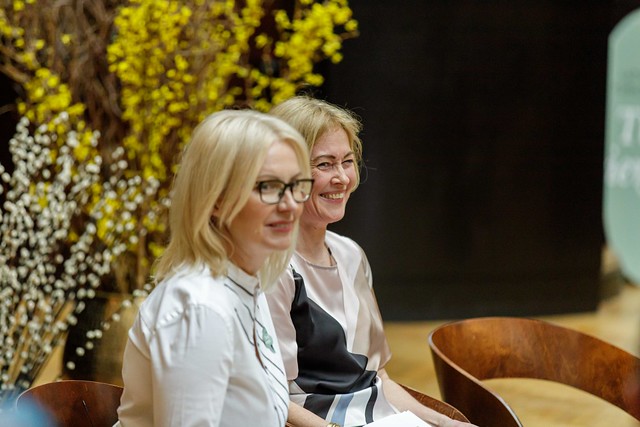Dear Mrs Miriam Vella!
Dear Mrs Ilze Zosule!
Dear participants!
Thank you very much for the invitation to participate in your event and to support a project that may prove necessary for each of us.
It is even more gratifying that our guest from Malta, Mrs Miriam Vella, considers palliative care her calling, and she is a patron of the hospice movement in Malta.
"Human dignity is inviolable at the beginning, during and at the end of life" (EU Charter of Fundamental Rights).
"Add life to your days, not days to your life", (Dame Cicely Saunders, founder of the hospice movement).
From our first day on the earth, it is known that we will die.
Some of us realise it in our lifetime and incorporate it into our vision of life, others keep it as far away from ourselves as they can.
But no matter which path we choose, we will not escape absolute finality.
When people are asked what worries them most, the most common answer is that death does not scare them, but the process of dying does. They mention the fear of pain, of being weak and unable, of losing control, of losing loved ones, of being a burden on themselves and others.
We all hope for a peaceful death, to fall asleep and never wake up again. However, seeing the unhealthy lifestyle we lead, filled with various harmful habits, such a death will be destined only for a few.
In the 1960s, Dame Cicely Saunders, a nurse and later a doctor in England, experienced this human torment and took action. At first, she set up the palliative care unit in a London hospital, and later a house, separate from the hospitals called “Hospice”.
Historically, the name hospice derives from the Latin hospitium. In the Middle Ages, they were places where pilgrims, both healthy and sick, visited. There they could rest and receive help.
Dame Cicely Saunders' idea of a place where terminally ill people could live out their last weeks in dignity and self-determination, and then pass away, spread around the world.
A place where the terminally ill person, with all his or her needs - physical, mental, spiritual and practical - is the determinant of action.
This means that this person will receive all the medical services and medicines he or she needs, especially painkillers. The person of faith will receive the last sacrament. The person is given the opportunity to make a will, reconcile and say goodbye to family, cuddle a four-legged friend.
Palliative care involves a holistic approach to both the sick person and his or her family.
This approach requires a multi-professional team, including volunteer helpers, and the benevolent and empathetic involvement of the family of the deceased.
Often the relatives need support not only at the moment the person falls asleep, but also after the person is gone.
Those who have accompanied terminally ill people in their final phase of life receive in return genuine gratitude. It also reinforces in them the knowledge of what really matters in life.
But let us not forget that people who sacrifice themselves deserve rest and the opportunity to share their feelings and their experiences.
It is becoming less and less common for people to see a loved one grow old or fall seriously ill and die in their own homes.
The reasons are many and varied. Several generations rarely live together anymore. Modern working conditions require mobility and families are dispersing. Marriages break up and new family constellations are created. Social media promote the cult of youth. Death does not appear there.
Death and dying are relegated to unattractive places like the back room of a hospital ward.
Often, today's young people encounter death and dying in horror movies, video games or on YouTube, which is clearly not conducive to their spiritual development.
I sincerely hope that the discussion on the need for palliative care and the creation of a hospice centre will allow society to remember that death is close to us, that it is part of life and cannot be separated.
In conclusion, I would like to mention some facts and recommendations:
- World statistics show that the majority of terminally ill people are cared for by women. Just as during the Covid-19 pandemic, women all over the world took on the responsibility of home-schooling their children alongside their daily duties, so also, when the need arises, women take care of their husbands, mothers, in-laws, and relatives. Unfortunately, often until they burn themselves out. Women can do anything, but it would be nice if they didn't have to do it alone.
- Palliative care should not start only when doctors have used all possible therapies and the patient is discharged from hospital to die at home. Palliative medicine (so-called Early Integration) should be involved as soon as it is clear that recovery will no longer be possible and should be targeted to reduce suffering so that the person can live the rest of his or her life in a more conscious and quality way for longer.
- Palliative care should be offered in both inpatient and outpatient settings. Most people want to die at home, in their own bed. If this is not possible due to various circumstances, inpatient hospice as a "second home" is the second best option.
- Palliative medicine and care should be part of the education of medical personnel.
- Where quality palliative care is provided, demands for medically assisted death or euthanasia disappear.
I wish you every success. Thank you very much!





